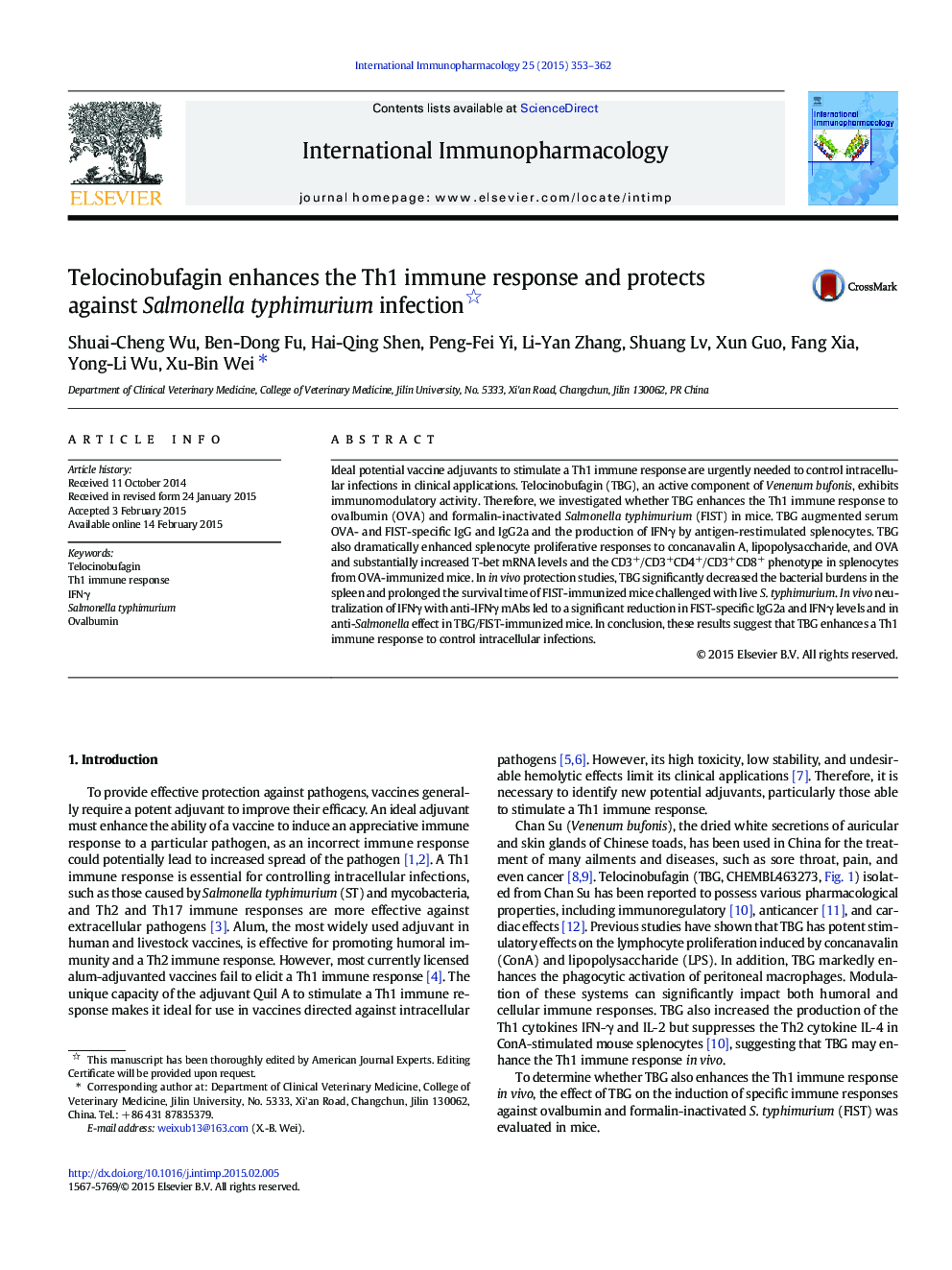| Article ID | Journal | Published Year | Pages | File Type |
|---|---|---|---|---|
| 2540584 | International Immunopharmacology | 2015 | 10 Pages |
•Telocinobufagin enhanced serum OVA- and FIST-specific IgG and IgG2a in mice.•Telocinobufagin improved the production of IFNγ and anti-Salmonella effect.•The anti-Salmonella effect of Telocinobufagin was inhibited by anti-IFNγ mAb.•Telocinobufagin improves the Th1 immune response.
Ideal potential vaccine adjuvants to stimulate a Th1 immune response are urgently needed to control intracellular infections in clinical applications. Telocinobufagin (TBG), an active component of Venenum bufonis, exhibits immunomodulatory activity. Therefore, we investigated whether TBG enhances the Th1 immune response to ovalbumin (OVA) and formalin-inactivated Salmonella typhimurium (FIST) in mice. TBG augmented serum OVA- and FIST-specific IgG and IgG2a and the production of IFNγ by antigen-restimulated splenocytes. TBG also dramatically enhanced splenocyte proliferative responses to concanavalin A, lipopolysaccharide, and OVA and substantially increased T-bet mRNA levels and the CD3+/CD3+CD4+/CD3+CD8+ phenotype in splenocytes from OVA-immunized mice. In in vivo protection studies, TBG significantly decreased the bacterial burdens in the spleen and prolonged the survival time of FIST-immunized mice challenged with live S. typhimurium. In vivo neutralization of IFNγ with anti-IFNγ mAbs led to a significant reduction in FIST-specific IgG2a and IFNγ levels and in anti-Salmonella effect in TBG/FIST-immunized mice. In conclusion, these results suggest that TBG enhances a Th1 immune response to control intracellular infections.
Graphical abstractFigure optionsDownload full-size imageDownload as PowerPoint slide
